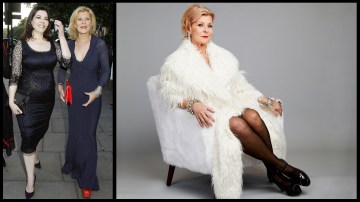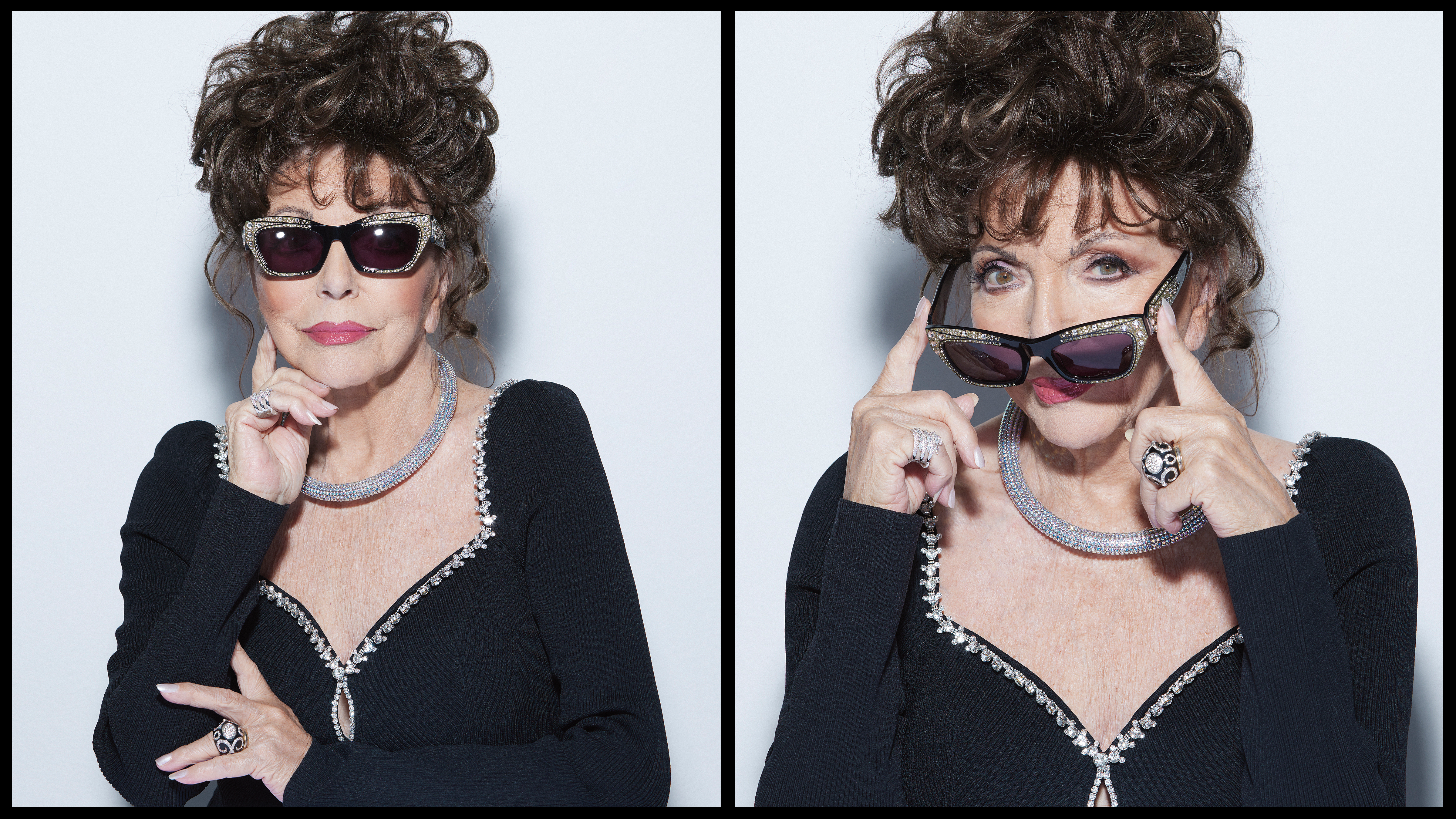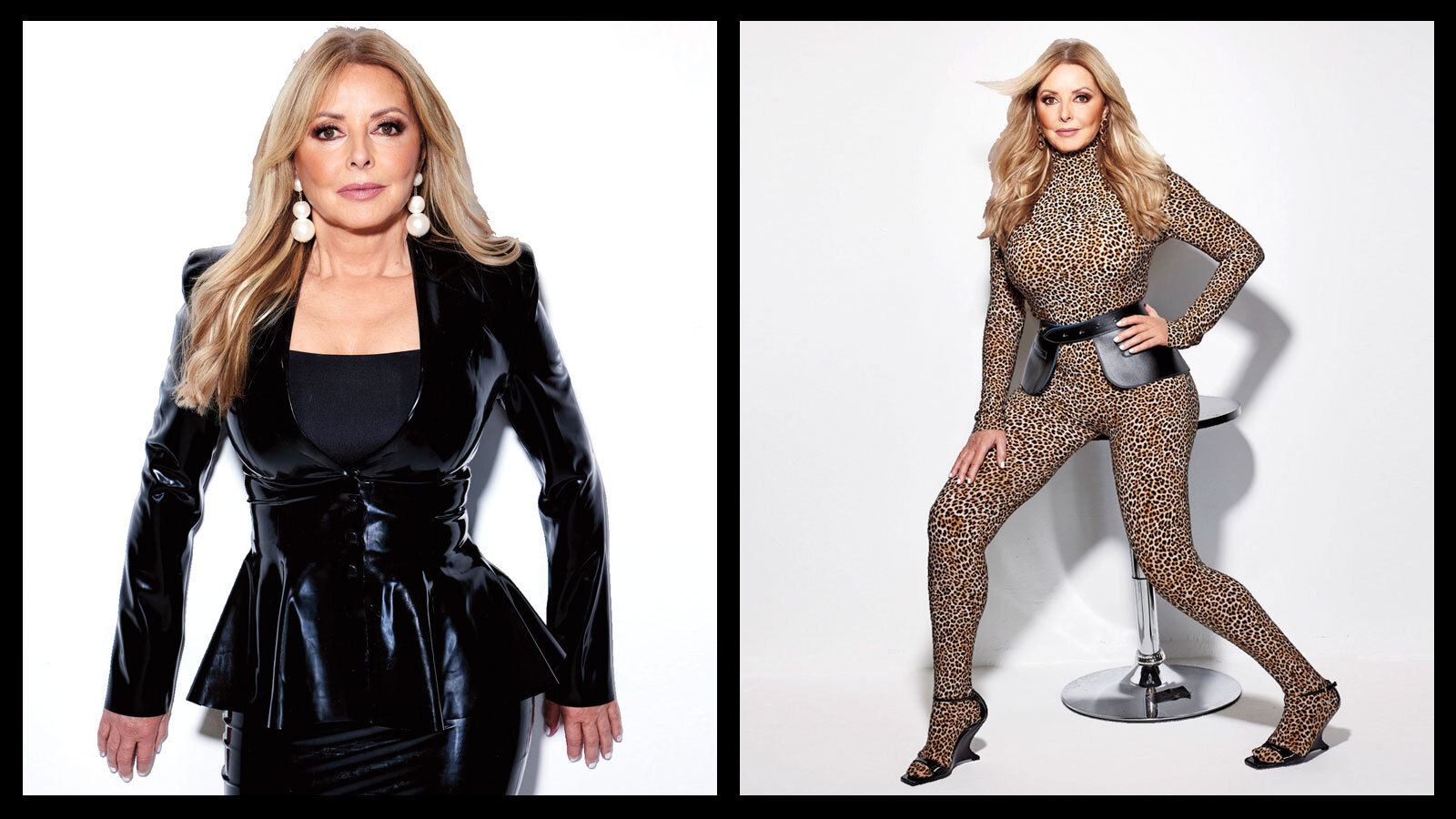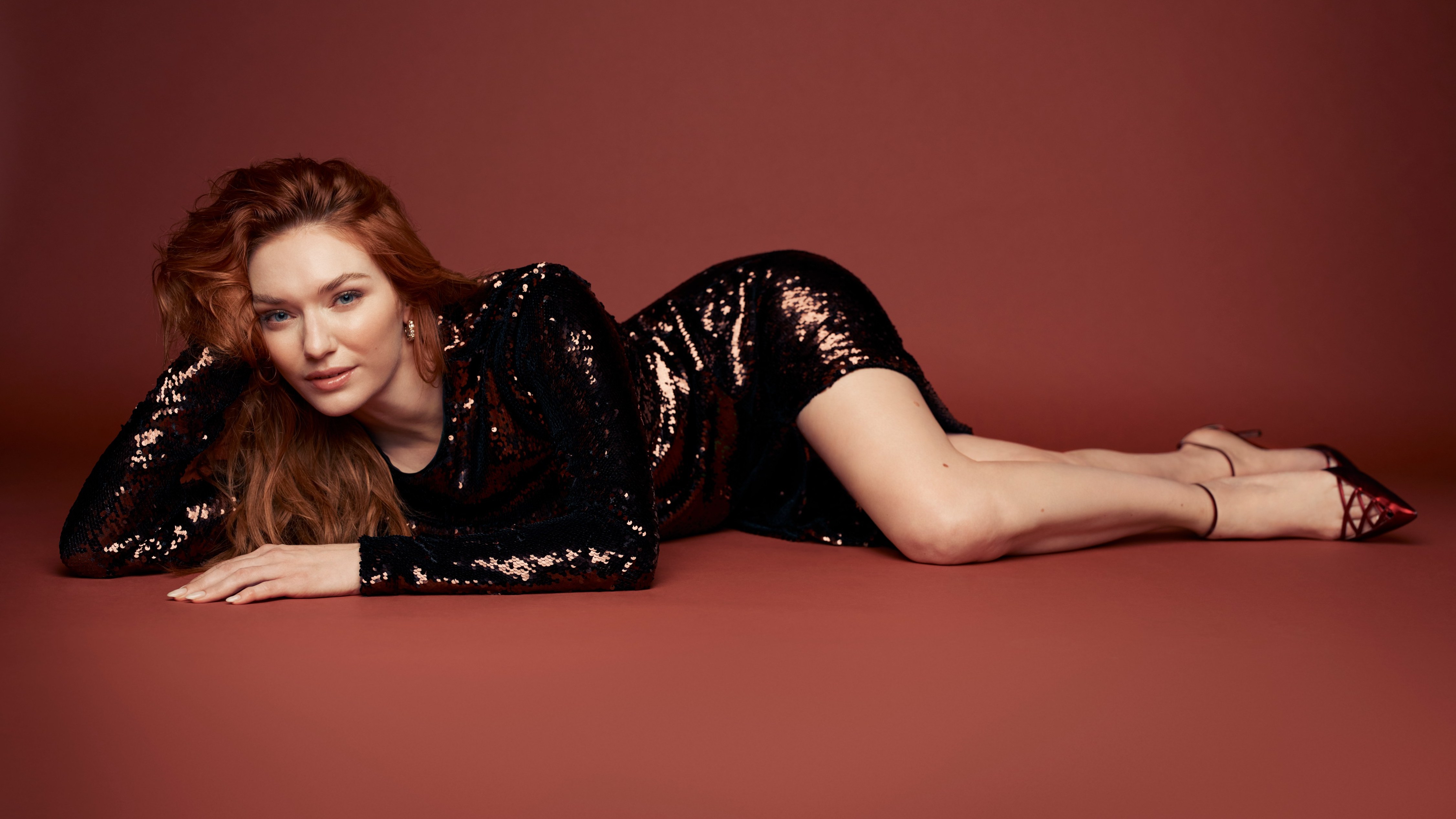Maria McErlane has spent her life on the fringes of fame, her own and other people’s. She has eaten seafood linguine with Michael Douglas and been charmed by Bradley Cooper. She found Roger Moore clever, Olivia Colman funny, Cilla Black ghastly and Joan Collins rude, at least at first. Tony Bennett once sang Fly Me to the Moon to her dog, which, as war stories go, is a pretty good one, but it is fair to say that McErlane is not impressed by fame.
“Fame gets you lots of free things and you get very rich,” she says, eating lunch in a café in her home town of St Leonards. Free things and lots of money don’t sound bad, I say. She fixes me with a beady eye.
“There is a price to pay, a really big price, depending on how much you fall into the addict element of it, how much you need it.”
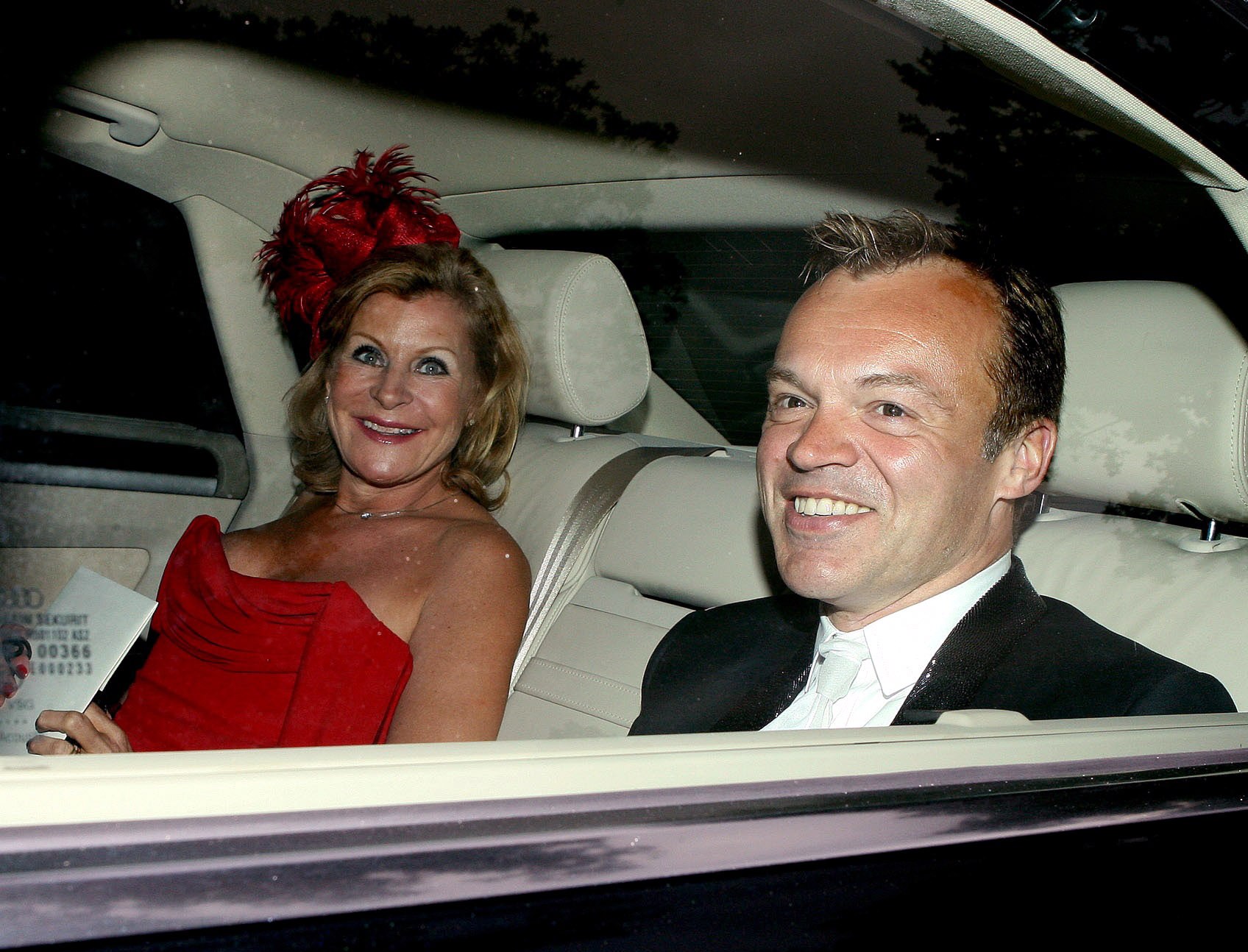
By way of example she starts talking about the people she used to meet behind the scenes at Graham Norton’s Radio 2 show, where she had a regular slot but was often dispatched by the producer to the green room to warm up the guests.
“The boy who had no clothes on,” she says, waving a fork, “the Cornish thing…”
Advertisement
Poldark? Aidan Turner?
“Poldark!” she says, jabbing a piece of mackerel triumphantly. “Aidan came in and I went, ‘Oh man, your life is about to change horribly,’ and he said, ‘I know. I don’t know how to cope.’ They know it’s coming. James Norton as well. Oh my God, I loved James Norton. Sexy as hell and a bit of a hippy. I always wanted to know which part of Planet Fame they were on. A lot of people, when they suddenly get famous, lose the run of themselves, as Graham Norton’s mum always said. Kathy Burke said the way to get through life is to brush your teeth and don’t be a c**t.”
McErlane, 66, is one of those people you recognise, but you may not be quite sure from where. You might know her voice from the radio, or her face from The Fast Show or Fat Friends. You might know her name from the columns she used to write for the Sunday Times and Esquire, but you probably don’t remember the condiment commercials she once filmed as an actress, or her comedy debut at the New End Theatre in Hampstead, when one reviewer described her as “an adorable bubble-haired blonde”.
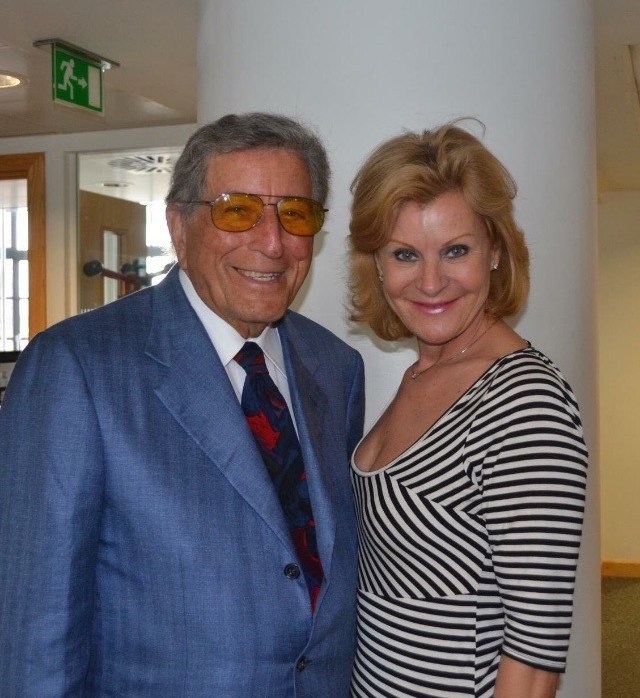
In the Eighties, you might have seen her on stage at the Comedy Store, sharing the bill with fellow up-and-coming young comics Jack Dee, Paul Merton and Jo Brand. As far as her mother was concerned, showbusiness was a one-way ticket to prostitution. Her daughter should have been happy with her first job, as an office junior at Tetley Tea in Bletchley, near Milton Keynes, where she grew up. Instead, as McErlane recounts in her memoir, Bumps in the Road, she ditched Tetley to explore life beyond Bletchley.
First, she was a teenage chambermaid in Newquay, then she moved to London and got a job as a receptionist at a film production company, where Joan Collins swept in one day. McErlane asked if she should call up to alert someone of her arrival. “Not any of your business, little girl,” replied Collins, without breaking step. When McErlane sat next to her many years later, she was “charm personified”. McErlane decided to train as an actress, but quickly realised she was never going to make it big and diverted into stand-up comedy. She has since had what is now known as a portfolio career: a bit of this, a bit of that, TV, radio, showbiz.
Advertisement
“Acting is a ridiculous profession,” she says, taking a sip of prosecco. “People do it because they want to be looked at. At least with stand-up comedy, you’re making people laugh. The response is immediate.”
She spent four years as a stand-up, occasionally getting a lift to gigs on the back of Dee’s motorbike. She was watching the night he discovered his comic persona by simply performing as he felt that day: grumpy. She was part of a new wave of comedy dubbed “alternative”, for the simple reason that it wasn’t northern men in working men’s clubs making mother-in-law jokes. There weren’t many women, so she says self-deprecatingly that she ticked boxes by being a woman on the bill.
“There was me, Jenny Eclair, Jo Brand. We were slightly after The Comic Strip Presents… with Dawn [French] and Jennifer [Saunders]. It was a very good sisterhood. The comedy circuit was a peculiar place then, with people that did trumpet noises and impersonated aeroplanes. We were all misfits together.”
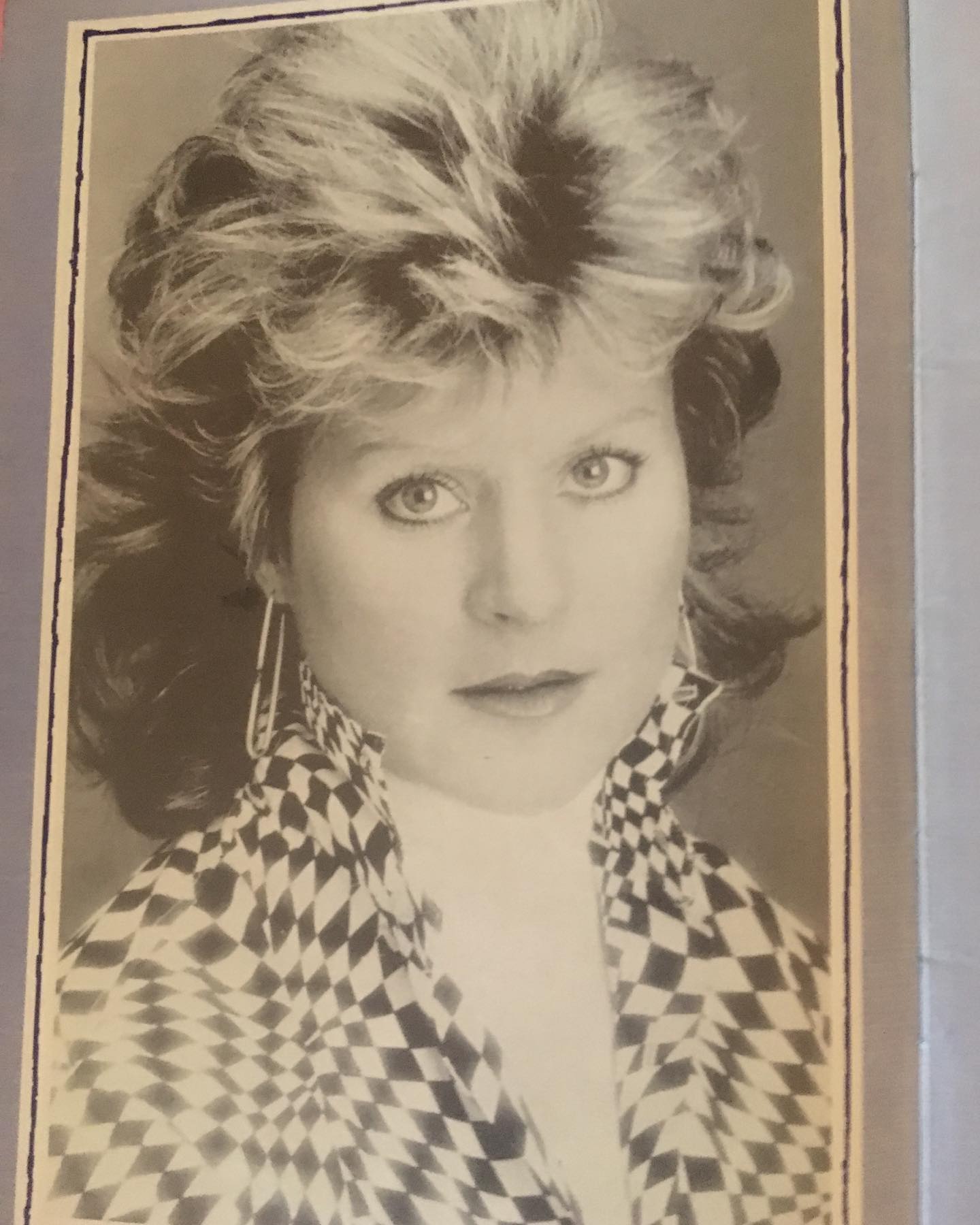
At the time, she writes in her memoir, the comedy clubs were full of TV people looking for the next Harry Enfield. Television work duly followed, although she points out that much of what she did then would be problematic now, including the occasionally “dodgy” Fast Show and widespread fat-shaming and blacking up on Little Britain. McErlane thinks it is a good thing, because it makes people work harder to find other targets.
“The pendulum always swings too far the other way and it will settle,” she says. “Life changes at a very fast pace, and I think it’s changing in the right direction as far as people’s feelings are concerned. Audiences are much kinder now, because we are more aware of mental health.”
Advertisement
McErlane was born in 1957 and brought up in a council house, the third of four siblings in a staunchly Catholic family. Her father was a factory worker who volunteered at the local church, while she and her sisters were “little handmaidens of the Lord for the Legion of Mary. Even as a small child I think I knew it was bunkum.”
From a young age, she was embarrassed by her background and her accent, and worked hard to erase them both. When a boy walked her home after a school disco one night, she stopped outside someone else’s grander house and pretended it was hers. When she moved to London, she stuck a photo of a nice house in Richmond, where her sister lived in a flat-share, in the kitchen, saying it was the family home.
Her book is unflinching in its detail of her mental health struggles, including eating disorders, alcoholism and depression, amid a personal life marred by tragedy. When she was 28 her partner, who was the same age, died suddenly. He had Marfan syndrome, a genetic disorder affecting connective tissues, which can have serious consequences for the heart, and died after an operation to replace a defective valve. Two months later, she discovered that she was pregnant, and the baby had a 50-50 chance of carrying the same genetic defect. She had an abortion. The grief becomes a part of you, she says, “but you play the hand you’re dealt. You have to look forward. When shit happens, you put one foot in front of the other. I was in a state of shock about the whole thing anyway, so it [the abortion] was just another thing to do. I felt like my shoulders were very sagged at that point.”
Her career went from strength to strength, with sitcoms, theatre and voiceover work, and an unexpected and lucrative offer to co-host The Big Breakfast with Chris Evans. She turned it down, partly because the 3am starts wouldn’t be good for her new relationship but mostly because they wouldn’t pay her the same as Evans. She thinks they offered her £170,000 a year and him £250,000, even though, at the time, she had more TV experience. They eventually raised her offer to within £20,000 of his, “but parity is parity. We’re doing the same job. We’re both getting up at 3 o’clock in the morning to do a live show from 7 until 9. We are doing,” she repeats, “the same job.”
It was through her TV work that she met John Diamond, the journalist then married to Nigella Lawson, who is now a close friend. She says in the book that after Diamond died of cancer, Harold Pinter sent Lawson a condolence note. “I happen to know that John recently went to see a production of my play, The Birthday Party, which he thoroughly enjoyed. Love, Harold.”
Advertisement
“We howled with laughter,” says McErlane, “and about the fact that Richard and Judy sent flowers. And when she was offered an OBE or an MBE or something and she said, ‘Why? Because I’ve got a dead husband and I do some cooking?’ ”
McErlane’s relationship at the time was increasingly unhappy, but then her partner pulled off the sort of stunt you usually read about only in novels. He kissed her goodbye one morning, said, “I love you very much,” left for work and never came back. She heard nothing until 16 months later, when she put their house on the market and he wanted his cut. Her friend Arabella Weir once met the woman he’d replaced her with and described her as an ugly version of Princess Anne. McErlane cackles with laughter. “It’s what I needed to hear.” Black humour got her through, along with a lapsed Catholic expectation that “life is always going to be a little bit shit”.
When Lawson was married to Charles Saatchi, McErlane found herself sharing the world of the super-rich and famous. She was on holiday with the couple in Italy when Michael Douglas dropped in for lunch. At a restaurant one night, she was seated next to Steve Martin. Another time, Michael Stipe from REM arrived for dinner from a nearby yacht and, when she admired a gobstopper ring on his finger, tried unsuccessfully to give it to her. She pulls a face recalling Martha Stewart, but then brightens, remembering a story.
“Charles Saatchi said to her, ‘What are you doing out of jail? Nigella was going to clean up in America while you were in prison.’ ” She cackles with laughter.
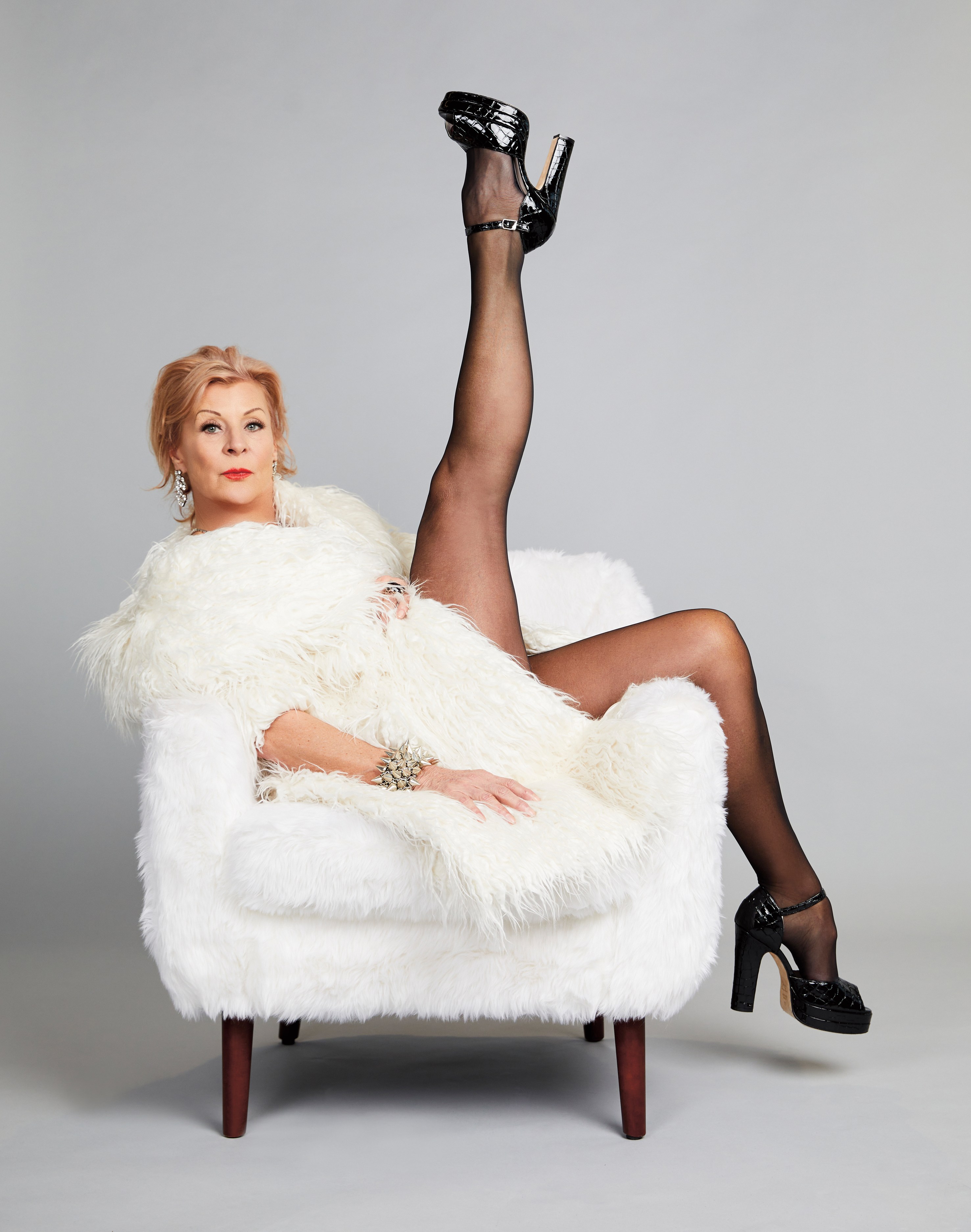
She moved from London to St Leonards just before Covid and loves the fact nobody asks her what she does for a living or whether she’s up for such and such a part. She rues the rampant ageism of TV, although Strictly Come Dancing is an exception. She had so many meetings about going on the 2014 series that she gave up smoking. Graham Norton joked that she was cannon fodder to be voted off early. In the end, the producers cast Judy Murray instead, so she started smoking again.
Advertisement
She writes that there are three types of celebrity. Type A doesn’t really like being famous and feels a bit embarrassed by it. Type B quite likes it, but doesn’t want you to treat them differently. Type C are the people “who milk it for every ounce of prestige and advantage that they believe they deserve”. Type C are basically the monsters. Cilla Black was type C.
“She was old school,” says McErlane, in an attempt to be diplomatic. “Old-school fame. You have a fur coat, a Rolls-Royce with a personalised number plate and a Bobby [Black’s husband] to do all the dirty work and complain about the runner who didn’t know you wanted your toast done on only one side. And I’m sorry to bring class into it, but the working class were worse because they had risen so far above what was expected of them.”
She won’t go into which celebrities are which types, but gleefully tells the tale of Nicole Scherzinger arriving for a radio interview with a full glam squad of stylist, hairdresser and make-up artist and disappearing into the disabled loo for two hours to get ready. “For the radio,” says McErlane, wonderingly. “The radio.”
She watched the recent Robbie Williams documentary and worries about the boy from Stoke-on-Trent who became a superstar at 16. She worries why, if he finds performing and being famous so painful, he carries on doing it and suspects it is another sort of addiction to add to the ones he has already conquered. “Also, what are these people going to do? Why is Madonna still going at 65? Why is Mick Jagger still doing it at 80? And Springsteen? What do you do with old rock stars?”
• Robbie Williams: ‘My breakdown was like a car crash in slo-mo’
Does someone need to warn Taylor Swift? “She’s got quite a lot about her, but yes, I don’t know which way she’ll go. She’s the Madonna of our age, isn’t she?”
McErlane met a former boy band member in America recently, who quit while he was ahead. Playing to 40,000 people, he told her, made him feel that life would never be as good again and he didn’t want to spend it chasing that feeling.
McErlane, on the other hand, has the enthusiasm of someone just getting started. The book is full of old-school advice to turn up for work happy and enthusiastic, smile a lot and don’t moan.
“And say yes to everything,” she says, “because you don’t know what will happen. The opportunities for things to say yes to get fewer as you get older. ‘Come ice skating! Do you want to try sky-diving? Shall we go to Le Touquet for the weekend?’ Yes! Say yes.”
To order a copy of Bumps in the Road by Maria McErlane (Great Northern Books, £17.99), go to timesbookshop.co.uk or call 020 3176 2935. Free UK standard P&P on online orders over £25. Special discount available for Times+ members


